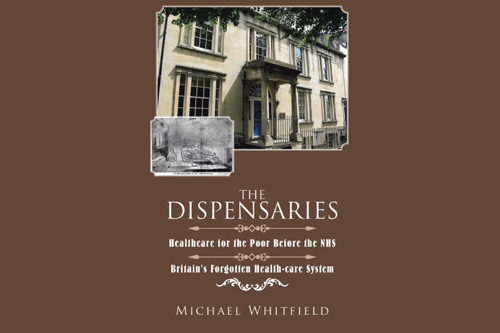In The Dispensaries, Dr Michael Whitfield, from the School of Social and Community Medicine, tracks the history of healthcare provision for the poor from around 1770, when the first dispensaries were set up, to 1948 and the establishment of the NHS.
Dr Whitfield said: "Dispensaries were created in cities by relatively wealthy citizens, to look after poor sick people. The wealthy, who became subscribers to these institutions, saw it as an act of philanthropy.
"Each subscriber was given a book of tickets that could be given to sick people to enable them to access the dispensary. Many doctors gave their services freely, but an apothecary or, later on, a medical officer was employed to run the dispensary, and to see the sick in their homes if they could not visit the dispensary.
"However, they were all funded voluntarily and although they were probably better than nothing, they were not universally available – the network was extremely patchy, with some areas – such as Bristol – being served quite well, while others were not so fortunate."
Dr Whitfield was born in Cambridge, and studied at Emmanuel College Cambridge. He undertook his clinical training at St Thomas' Hospital, London, and became a GP in Bristol in 1967. He was also a senior lecturer in general practice at the University of Bristol, and has been researching and writing about the history of medicine for more than 10 years.
The Dispensaries: Healthcare for the Poor Before the NHS is published by AuthorHouseUK and available now.
